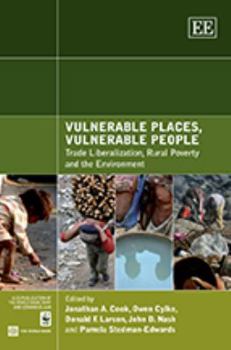Vulnerable Places, Vulnerable People: Trade Liberalization, Rural Poverty and the Environment
Select Format
Select Condition 
Book Overview
The authors trace international trade rules and events down through national development contexts to investigate on-the-ground outcomes for real people and places. The studies underscore the importance of evaluating trade from a perspective that pays attention to environmental and social vulnerability and understands the linkages between poverty reduction and environmental protection. The lessons drawn provide a critical first step in developing the appropriate response options needed to ensure that trade plays a positive role in promoting truly sustainable development.
Academics and students in environmental economics, development economics and agriculture, as well as policymakers and those in development institutions will appreciate this groundbreaking work.





